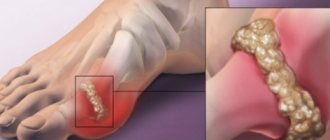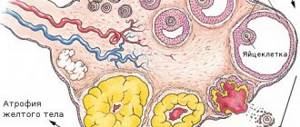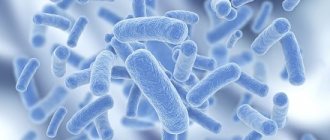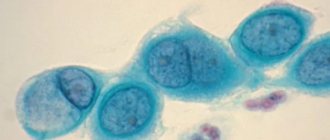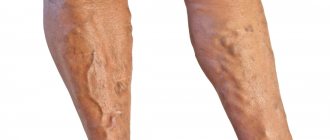Perhaps every woman at a certain stage of her life is interested in the question of when menopause occurs and what its manifestations are. Taking into account the individual characteristics of the female body and the hereditary factor, the menopause does not have strict age restrictions.
In addition, the clinical picture of menopause may contain a different set of symptoms and be expressed with different intensity in each woman. The menopausal period is a crucial life stage for every woman, so it is very important to track its debut manifestations and try to help the body in the fight against hormonal disorders.
What is menopause in women: symptoms, age, treatment of possible problems
Menopause (menopause) is a period of gradual decline in the body's reproductive function, which is caused by a decrease in the production of sex hormones. At this stage, menstrual flow (months) becomes irregular, scanty and eventually stops. This occurs due to a decrease in the production of estrogen and progesterone, depletion of the follicular reserve of the ovaries during menopause, and their atrophy, which leads to a decrease in their weight and size by almost half.
Some may complain of hot flashes, headaches, unstable blood pressure, while others may practically not notice changes in their own body, except for the cessation of menstruation, that is, this period passes without symptoms. If the symptoms of the onset of menopause cause a deterioration in a woman’s quality of life, then appropriate therapy is prescribed, which will be discussed below.
Physiological and psycho-emotional changes during menopause
From all of the above, we can conclude that both physiological and psycho-emotional changes occur in a woman’s body. In this section we will look at these two aspects separately. Physiological restructuring in a woman occurs in its own way and at its own time. It all depends on the rate at which estrogen levels decrease.
Here are the physiological changes that occur during menopause:
- The vagina contracts and its walls become thin and dry;
- The ovaries and uterus are reduced;
- The mucous membrane of the uterus becomes thinner and stops working over time;
- The bladder loses tone and elasticity;
- The muscles that form the pelvic diaphragm and support the internal organs become weaker;
- The mammary glands contract and the breasts lose their fat layer;
- Bones lose their mass;
- The skin becomes drier, thinner and more sluggish;
- The arteries narrow and become less elastic.
Psycho-emotional symptoms during menopause
As for the psycho-emotional state, menopause also affects it. It is very difficult to control your emotions. When the hormonal background begins to change, psychological changes also occur and you can observe:
- Increased irritability;
- Anxiety;
- Tearfulness;
- Unstable emotional state;
- Difficulty concentrating and remembering;
- Insomnia;
- Decreased libido;
- Chronic fatigue;
- Increased sensitivity and suspiciousness.
When do the first signs of menopause appear: the age of women
The time of onset of this period is individual for each woman and depends on a number of factors (heredity, general health, number of births in history). On average, the age at which the first symptoms of menopause appear is 50 years, but in some cases, the onset of menopause can be observed at both 40 and 60 years. The greatest intensity of menopause symptoms usually persists for a year, after which it gradually decreases and ends.
Separately, it is worth noting early menopause. Symptoms of this condition can begin as early as 28-30 years of age. If the first signs of menopause occur so early, there is a risk of developing cardiovascular diseases and osteoporosis at a young age.
The first symptoms of menopause in women aged 40-50: how does menopause begin?
Among the main signs of menopause after 40, which appear first, are the following:
- Hot flashes, sweating. Hot flashes are the first signs of menopause, which 75-85% of women experience. Hormonal changes in the body during menopause affect thermoregulation processes. As a result of changes in hormonal levels during menopause, a woman may suddenly experience bouts of fever, which usually last several minutes and go away on their own. The mechanism of their occurrence is associated with the effect of estrogens on the hypothalamus, which contains the thermoregulation center that controls the processes of retaining heat by the body. When the amount of estrogen decreases during menopause, signals are sent to the hypothalamus that the body is overheating, which results in increased sweating and dilation of peripheral blood vessels. At such moments, the woman’s face and neck turn red, beads of sweat appear on the skin, the heartbeat quickens, dizziness, nausea and weakness may be present. At the end of the attack, profuse cold sweat may appear, accompanied by trembling.
- Heart rhythm disturbances during menopause. Tachycardia during menopause is caused by a decrease in estrogen levels, which normally affects the maintenance of normal functioning of the cardiovascular system.
- Dizziness, headache. These symptoms of incipient menopause can be caused by high/low blood pressure, as well as its sudden changes.
- Forgetfulness. Changes in hormonal levels lead to a decrease in vascular tone and affect cerebral circulation, which is why women during menopause complain of memory problems.
- Unstable emotional background during menopause. A decrease in the level of estrogen and endorphins leads to tearfulness, irritability and excessive sentimentality.
- Lack of thyroid hormones (hypothyroidism). Symptoms of hypothyroidism in menopausal women include apathy, difficulty concentrating, and hair loss.
- Vaginal dryness, itching and burning in the vagina during menopause. Due to a decrease in estrogen levels, there is a decrease in the production of natural vaginal lubrication, the intensity of blood flow in the vessels of the vaginal walls decreases, and thinning of the mucosa occurs. All this leads to dryness and itching; intimacy during menopause causes painful sensations.
- Osteoporosis. Osteoporosis is one of the dangerous symptoms of menopause that can lead to bone fractures. The reason for the decrease in bone density is the gradual leaching of calcium from the body, as well as a disruption in the absorption of phosphorus and vitamin D, a lack of silicon, boron, fluorine, magnesium and manganese.
- Gaining excess weight. Weight changes are explained by a decrease in the rate of metabolic processes, an attempt to compensate adipose tissue for extragonadal synthesis of sex hormones, which is one of the characteristic symptoms of female menopause.
- Decreased skin tone. One of the functions of estrogens is to maintain the elasticity of the skin. As the production of these hormones decreases, skin tone deteriorates, resulting in wrinkles, dryness, and flaking during menopause.
- The occurrence of mastopathy and chest pain due to ongoing hormonal changes.
Problematic features of menopause in women: symptoms and treatment
In some cases, the manifestations of menopause cause a woman such a severe deterioration in her quality of life that she has to seek medical help to reduce them. Below you will find general information regarding the treatment of menopausal symptoms, but remember that treatment should be prescribed by a specialist.
Treatment of hot flashes during menopause
For frequent and intense hot flashes that cause physical and emotional discomfort to a woman, menopausal hormone therapy (MHT) medications may be prescribed. They contain analogues of sex hormones - both plant and synthetic origin. More often it is a combined drug based on estrogen and progesterone, which has a protective effect on the uterus (endometrium) and mammary glands.
Drug treatment of menopausal syndrome
In order to get rid of severe manifestations of menopausal syndrome, hormonal drugs that contain estrogens are prescribed. Depending on the clinical picture, symptomatic therapy is used. For severe hot flashes to the head and upper body, hyperhidrosis and itching, antihistamines are used, and for cardiovascular disorders, antihypertensive drugs are used. If mental reactions predominate, doctors recommend soothing herbal infusions (valerian, motherwort) or sedatives and tranquilizers.
How to reduce symptoms and signs of menopause in women: useful tips
With the onset of menopause, it is recommended to adhere to the following recommendations:
- Move more, engage in feasible sports and physical exercise.
- Master breathing and relaxation techniques
- Eat right and stay hydrated.
- Exercise your brain (read, solve crosswords, learn foreign languages).
- Perform exercises that train fine motor skills.
SOFT CLIMAX. Zhexembinova R. S. // Bulletin of surgery of Kazakhstan. – 2011. – No. 4. – P.98.
Menopausal syndrome. EAT. Vikhlyaeva // Guide to endocrine gynecology. - M.: MIA. - 1998. - P. 603-650.
Therapy of depressive disorders in general medical practice. Dubnitskaya, E.B. A.V. Andryushchenko // Modern psychiatry. – 1998. – No. 2. – pp. 10-14.
Menopause and perimenopausal period. R.B. Jaffe // Reproductive endocrinology. Edited by S.S.K. Yen, R.B. Jaffe. – M.: Medicine. - 1998. - T.2. – pp. 560-586.
Menopause in a woman: how to recognize the symptoms of the onset of menopause and alleviate the condition?
To date, many products have been developed that can help women during menopause eliminate unpleasant psychological symptoms.
Severe stress can provoke premature, early menopause.
Special exercises will help you get into the right frame of mind and get rid of anxiety during menopause.
You cannot completely get rid of stress and negative experiences, but you can learn to cope with your emotions and prevent their destructive effects.
Anxious thoughts about menopause begin to visit women long before the first signs of menopause appear. According to statistics, already at the age of 35, most women think about how menopause will change their lives. Sometimes women are so afraid of these changes that they even develop neurosis. Meanwhile, menopause is not at all as scary as it seems - you just need to know what to prepare for.
Sex during menopause: are they compatible?
Many people believe that sex during menopause is impossible. But actually it is not. Sex during menopause is very useful. You just need to approach this matter correctly so that both you and your partner get the most out of it. If you want to learn more about how sex and menopause are compatible and how to solve some of the problems that may arise during this period, then you should read our article on Elgreloo.com “Menopause and sex. How to have sex during menopause?
As you can see, most of the problems associated with the onset of menopause are easy to eliminate and therefore women should not be afraid of it, because life does not change dramatically due to menopause. Of course, each period has its own characteristics and should definitely be taken into account. And if you follow all the doctors’ recommendations, then you will not have any troubles.
Stages of menopause, or New stages in a woman’s life
Menopause is a period when the body prepares to “shut down” the reproductive system. During this time, the amount of estrogen, the female sex hormone, decreases, and this process is accompanied by a variety of changes in health. The decline of ovarian function is a long process that takes 5–6 years, and sometimes more.
Menopause begins approximately 2 years before the last menstrual period and ends 3–4 years after it.
This whole long process can be divided into three stages:
Premenopause
On average, it begins at the age of 45, although this is very individual - sometimes the first signs appear at the age of 38–40, and sometimes women do not feel any changes until almost their 50th birthday. The ovaries are still working, but menstruation becomes irregular and the intervals between them increase. During this period, a woman may experience hot flashes for the first time; some note a decrease in libido, bouts of blues and headaches.
Menopause
The average age of a woman when she reaches menopause is 50–53 years. The ovaries stop working, menstruation stops, although they can still come at very large intervals. Changes caused by a lack of estrogen begin to appear especially clearly. During this period, bones become fragile, and the development of cardiovascular diseases and even diabetes is possible.
Postmenopause
This term refers to the period from the last menstruation to the end of life. During postmenopause, all the unpleasant symptoms that plagued menopause usually disappear. Most menopausal symptoms occur during perimenopause and menopause. Both of these periods together can last on average from 5 to 10 years.
Signs of menopause: the first alarm bells
Menopause manifests itself in different ways. However, you should not think that you will necessarily experience all the unpleasant symptoms at once. More than half of women admit that they experience only minor inconvenience, while one in ten does not experience typical signs of menopause at all. Discomfort associated with the approach of menopause affects only a third of all women. However, it is necessary to know how menopause manifests itself.
Menopause and its first precursors: how to determine the onset of menopause + first signs in women
Menopause is a physiological process that every woman experiences from 40 to 60 years old. This range in age is associated with the individual characteristics of the body, living conditions, genetic predisposition and other factors.
A woman’s purpose is procreation, motherhood; it is inherent in nature that at a certain period the reproductive function begins to gradually fade away.
Hormones play a leading role here; it is with a decrease in the production of female sex hormones in the ovaries (estrogens, estradiol) that a radical restructuring of the female body occurs. It is called menopause or menopause and brings a lot of inconvenience and anxiety to the weaker sex. This period is accompanied by certain symptoms.
Causes
Menopause that occurs at the age of over 40 is considered normal. The onset of menopause earlier than this period is considered premature menopause.
The main causes of early menopause are:
- a predisposition that is inherited;
- the presence of abortions or operations related to reproductive function;
- bad ecology;
- constant presence of stressful situations in life;
- long-term exposure to chemotherapy;
- abuse of bad habits;
- irregular sexual intercourse.
The reasons for the onset of physiological menopause are quite simple: the body begins to rebuild due to a decrease in the amount of estrogen.
When and how does it occur in women?
There are no strict time criteria for the onset of menopause, as for any physiological process. For some ladies, the process of restructuring goes almost unnoticed, while others suffer from its painful symptoms. In many ways, the moment of menopause is determined by hereditary factors. It is generally accepted that on average it occurs by age 50. But recently this process has become known, so it is important to know how to determine it.
There is a theory that the onset of menopause is predetermined during the period of intrauterine development . A certain number of eggs are laid in the ovaries of a developing girl. They are consumed during her reproductive period. Some, maturing monthly, leave the ovarian follicle, and some die for physiological reasons before reaching maturity. But their numbers are decreasing year by year. And when reserves are depleted, menopause occurs.
The follicle acts as a kind of egg bank. During the reproductive period, it manages to mature 300-500 oocytes ready for fertilization.
Causes of early and late menopause
Early menopause is considered to be the manifestation of menopausal symptoms before the age of forty . The causes of this phenomenon can be hereditary and acquired. The first category includes various chromosomal pathologies. The acquired factors are very different in nature.
Also read about the symptoms of menopause after 40 years here.
Among them:
- Hormonal pathologies of the thyroid gland, metabolic processes (diabetes mellitus, obesity) and others.
- Gynecological diseases and the consequences of their treatment (chemotherapy, surgery, etc.).
- Numerous abortions.
- Unqualified hormonal contraception.
- Bad habits (smoking, alcohol, etc.).
- Oncological diseases.
- Postponed surgeries.
- Violations of work, rest and nutrition regimes.
- Unfavorable climatic or environmental conditions.
- Stress.
It, like early menopause, is often genetically predisposed. But this is not always a good thing for a woman.
Pathological causes of late menopause may be:
- Gynecological diseases (uterine fibroids, ovarian dysfunction).
- Some types of tumors are characterized by high levels of estrogen in the blood, as a result of which menstruation does not stop for a long time.
- Previous gynecological operations using chemotherapy or radiation.
- Long-term treatment with antibiotics or other drugs that affect reproduction.
Nutrition has a significant impact on the sexual sphere. It has been noticed that in Japan, menopause in women occurs late and is painless. This is due to the fact that their diet is dominated by seafood.
Early menopause
Early menopause is a fairly rare phenomenon, occurring in only 1-2% of women. Early menopause is very stressful for the female body, negatively affecting physical and mental health.
In this situation, a woman loses the ability to conceive, since the secretion of female sex hormones, which for many years have had an effect on various tissues and organs of the female body, stops. In recent years, there has been an opinion among experts that the condition of early menopause would be more appropriately called premature ovarian failure.
The development of menopause always occurs according to one of two scenarios:
- Complete depletion of the follicular apparatus (ovarian depletion syndrome).
- Insensitivity of the ovaries to gonadotropic stimulation (resistant ovarian syndrome).
Causes of premature menopause:
- genetic predisposition,
- viral infection,
- autoimmune processes,
- iatrogenic factors (surgical interventions on the uterus and ovaries, chemotherapy, radiotherapy),
- idiopathic factors (smoking, fasting, adverse environmental influences).
Due to the fact that early menopause is associated with insufficient functioning of the ovaries (estrogen-produced function), in this situation the most effective means for treating early menopause in women are hormonal drugs that include estrogens. The dosage of hormones is selected based on age, and the regimen for taking hormone replacement therapy drugs depends on the presence or absence of menstrual bleeding.
Harbingers
The first harbingers of the onset of menopause appear long before its onset. As a rule, women do not notice them. This is especially true for those who at the age of 30-40 suffered gynecological diseases (endometriosis), had problems with conception or pregnancy and childbirth.
The first sign of premenopause - instability of the menstrual cycle - in the modern world is increasingly lost against the background of many years of irregular periods in women of childbearing age . Changes in the duration of menstruation, intensity of bleeding, missed periods and others that are characteristic of precursors are difficult to distinguish from signs of dysfunctional disorders occurring in them. They are associated with stress, unfavorable ecology, frequent abortions and the not always justified use of hormonal drugs.
The onset of hormonal changes can be manifested by periods of shortening of the menstrual cycle to two to three weeks. And alternating missed periods result in bleeding. Over time, these pauses become more frequent.
In the early stages of menopause, PMS often worsens due to hormonal imbalance. At the same time, mood swings become more frequent, which can lead to depression.
Also read why basal temperature changes during menopause.
A decrease in estrogen levels also affects sex life. These ubiquitous hormones also control the hydration of the vaginal mucosa and the production of lubricant to reduce friction during intimacy. When this does not happen in time, discomfort, dryness in the intimate area and decreased interest in intimate relationships appear.
Treatment of menopause with folk remedies
Traditional medicine is rich in various means to help a woman survive menopause. And most of the folk recipes consist of natural ingredients containing phytoestrogens, trace elements and vitamins, as well as other biologically active components. Nature is also rich in herbs that calm the nervous system, which help with hot flashes, stress, neuroses, psychosis and depression.
Borovaya uterus - a recipe for bleeding
Borovaya uterus is a poisonous plant that can help, but can also harm. This herb should not be taken for a long time without the advice of a doctor. Its main effect is to stimulate the production of progesterone, so the boron uterus is usually used for uterine bleeding, irregular menstrual cycles, and also to reduce the negative effect on the endometrium when taking medications containing estrogens.
Use ready-made alcohol tinctures, take 30 drops 3 times a day between meals. Or prepare infusions, for this you take 1 tbsp. l. boron uterus herbs, pour 200.0 ml of boiling water over it and leave for 15 minutes. You need to take this infusion 1 tbsp. l. 3 times a day between meals. The course of treatment is no more than 4-8 months.
Red clover grass is a storehouse of phytoestrogens
Relieves the symptoms of hot flashes,
- increases libido and enriches sex life,
- improves sleep, has a sedative effect,
- prevents the development of wrinkles, improves hair and nail growth.
When treating menopause, use an infusion of red clover; for this, take 2 tbsp. dry herbs, pour 200.0 ml of boiling water and leave in a thermos for 8 hours. Take 50 ml per day on an empty stomach, 30 minutes before meals.
Red brush tincture
Contains phytoestrogens, normalizes hormone balance,
- increases immunity,
- relieves hot flashes,
- has a beneficial effect on the nervous system and mental state of a woman, calms,
- speeds up metabolism and promotes weight loss,
- fights weakness and fatigue,
- improves memory and attention,
- improves the condition of the vaginal mucosa,
- a storehouse of useful microelements.
You can buy red brush tincture at a pharmacy or prepare it yourself. For home preparation, take 50 grams of dry grass and fill it with 500.0 ml of vodka. We insist on all this in a dark, cool place for a whole month.
Take tincture 1 tbsp. l. 3 times a day half an hour before meals. You should not take the herb before bed.
The red brush has many contraindications, so you should consult your doctor before using it.
Sage for menopause
Contains phytoestrogens, regulates hormonal balance,
- rejuvenates the skin, improves hair growth,
- relieves hot flashes,
- acts on the sweat glands, eliminating excessive sweating,
- has a calming effect, improves mood,
- relieves headaches,
- helps stop uterine bleeding.
How to get rid of the lack of female hormones with the help of sage was known back in Ancient Egypt, even then women noticed its wonderful properties for procreation and preservation of youth and beauty.
Traditional treatment of menopause with sage involves various methods of its use:
- herbal infusions and tinctures,
- spices for meat,
- herbal teas and infusions,
- sage oil, herbal infusions, extracts in skin care products,
- sage essential oils for aromatherapy,
- intimate hygiene products to combat vaginal dryness,
- Menoforce tablets.
But you cannot overdo it, since in large doses and with long-term use, sage can be toxic to the digestive organs.
How to recognize?
Summarizing what was said earlier, we can understand that the beginning of menopause is considered to be premenopause. This process, which takes more than a year, is characterized by increasing pauses between menstruation, bleeding after them and scanty discharge during menstruation.
This is considered normal. But at the beginning of menopause, pathological disorders are also possible when estrogens, on the contrary, are produced intensively. This anxiety syndrome is called hyperestragenia. In this case, menstruation becomes heavier and longer, and bleeding is also common. The mammary glands become enlarged, hardened, and touching them causes pain. During a medical examination, fibroids and thickening of the uterine walls are detected.
Symptoms
Signs of menopause are divided into early and late. The earliest of them have already been mentioned.
It is also typical for her:
- Dizziness, blood pressure changes, tachycardia, weakness.
- Nausea, swelling, joint pain;
- Pain in the lower abdomen;
- Hair loss, deterioration of skin and nails;
- The appearance of an unpleasant body odor;
- Insomnia, anxiety, emotional imbalance. (Hysteria, translated from ancient Greek means “womb”)
- Drowsiness and depression.
Late manifestations of menopause include various pathologies and diseases due to hormonal disorders. At risk are the cardiovascular, endocrine and skeletal systems, genitals, metabolic processes, skin and other organs and systems.
Is it possible to pause the start and how?
Manifestations of early menopause are a consequence of ovarian dysfunction. If its causes are not hereditary abnormalities that are difficult to correct, then in many cases hormone replacement therapy comes to the rescue . It is also effective for the prevention and suspension of many diseases of the reproductive system.
A rational, healthy and regular diet is very important.
We should not neglect proven folk remedies and herbal medicine. So, ginger can delay menopause. Strengthening and physical exercises, regular walking, and walks in the fresh air increase immunity, and therefore help strengthen the body in the fight against premature aging.
From the above, conclusions arise:
- Menopause is a physiological process, and there is no need to be afraid of it. It lasts for several years.
- The main role in it is played by hormonal changes and a decrease in estrogen production.
- The time of its onset and course are always individual, but it is unacceptable to ignore early menopause.
- Menopausal manifestations can be recognized by characteristic symptoms.
- To avoid early aging, you need to monitor your health, do not neglect physical activity and do not skip preventive examinations with a doctor.
Prevention
You can prevent the unfavorable onset of menopause in women if you take care of your health and lifestyle in advance. Prevention methods in this case are the following recommendations from specialists. Before a crisis occurs, a woman should:
- Walk in the air.
- Maintain personal hygiene.
- Do not get carried away with baths and saunas.
- Quit cigarettes and alcohol.
- Don't drink too much coffee and tea.
- Reduce consumption of fatty foods.
- Do more sports or adequate physical activity.
- Wear underwear made from natural fabrics to avoid excessive sweating.
A woman cannot refuse to experience the process of extinction - this does not depend on her, because the restructuring is entirely considered natural. But she can reduce the threshold of hypersensitivity to the disruptions that hormones or other changes bring her. According to experts, it is generally accepted that the earlier menopause begins to appear in women, the more difficult it will be to bear.
You can already listen to yourself, starting from the age of 40, and it is extremely important to take care of yourself - rebuild your lifestyle to a more healthy one, partially or completely eliminate heavy foods from your diet - animal fats, smoked meats, foods with a high content of synthetics and chemicals . Exercising, walking in nature, maintaining a positive attitude are all favorable factors for smooth development and the onset of menopause.




